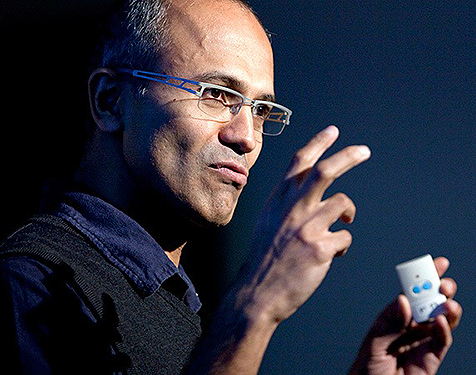Main Content
L1: Course Overview and Introduction

What Is Most Important in Leadership: Technical Expertise, IQ, or EI?

“Because of the constantly changing environment in which we live, individuals require more than just task competencies or technical know-how to be successful.”
What predicts leadership success? Traditionally, potential leaders were evaluated and hired based upon a combination of education, experience, technical skills or expertise, cognitive intelligence or intelligence quotient (IQ), and perhaps other factors related to leadership, such as communication skills or being extraverted. These are considered threshold qualifications that determine whether a leader gets a job and can learn and perform the basic functions of the job (Goleman, 1997).
IQ can be described as the measure of “your memory, vocabulary, mathematical skills and visual-motor coordination” relevant to work performance (Stein, 2017, p. 28). However, once you get the job, it is emotional intelligence (EI) that differentiates who will excel at their job and become a star performer. This includes who will be a successful leader. So, high IQ and technical expertise, once considered key determinants of success at work, are not enough. There is now extensive research that shows that, once you get the job, emotional intelligence is much more important as a predictor of performance and success than IQ (see Consortium for Research on Emotional Intelligence in Organizations).
So, the term emotional intelligence was first presented at a conference and published in a journal by psychologists Salovey and Mayer (1990) but later mainstreamed because of the best-selling book by Daniel Goleman called Emotional Intelligence. Assessments that measure emotional intelligence were also developed.
One of the most popular measures of emotional intelligence is called the EQ-i, or the Emotional Quotient Inventory, created by psychologist Reuven Bar-On. The second version of this assessment, the EQ-i 2.0, is what we will use in this course. Bar-On describes emotional intelligence as “an array of non-cognitive capabilities, competencies, and skills that influence one’s ability to succeed in coping with environmental demands and pressures” (as cited in Stein, 2017, p. 36).
Emotional intelligence can be considered the intrapersonal competencies needed to excel at work. A similar competency influencing success is called social intelligence. This term is attributed to psychologist Edward Thorndike who in 1920 described social intelligence as “the ability to understand and manage men and women” (as cited in Nadler, 2011, p. 9). The theoretical framework for the EQ-i 2.0 takes both types of competencies into account.
So, it is emotional and social intelligence competencies that determine who will succeed and become a star performer—and the lack of these competencies determine whose leadership will likely be derailed. These are the underlying capacities to manage yourself and your interactions with others. How emotional and social intelligence is displayed at work involves your capacity to be self-aware, manage your anxieties, be empathetic toward others, handle conflict, make decisions, adapt to changing demands, and much more.

What Derails Leadership?
There are many factors that can interfere with the success of a leader. Think about your own experience with the leadership of others. You may have noticed negative personality factors that research has found interfere with leaders' success—explosive temper or lack of emotional control, arrogance, and egocentrism (Hernandez et al., 2021).
However, personality factors alone cannot fully account for the reasons leadership gets derailed. Hernandez et al. (2021) found that environmental factors also impact leaders’ capacity to succeed, such as the impact of the lack of childcare during the recent pandemic on the capacity—especially for women—to be at work and move up the corporate ladder.
![]()
